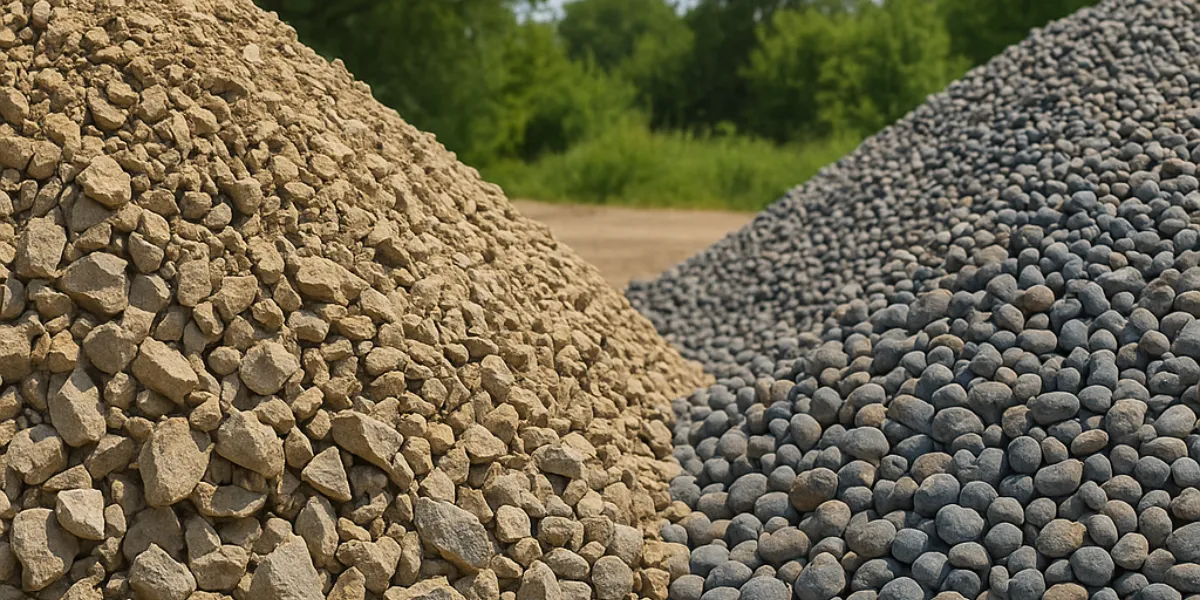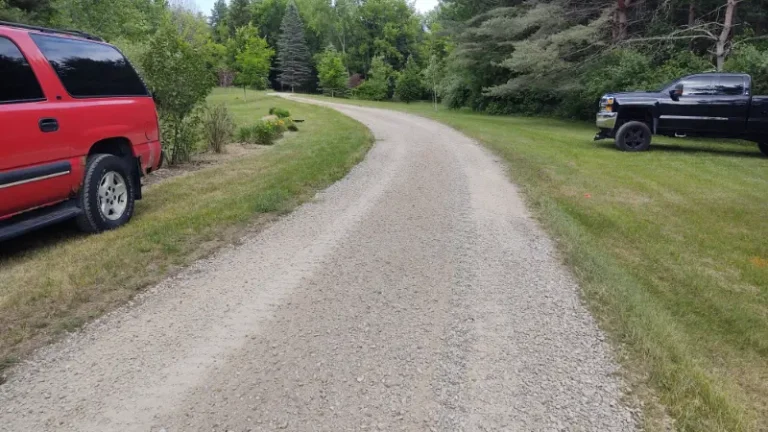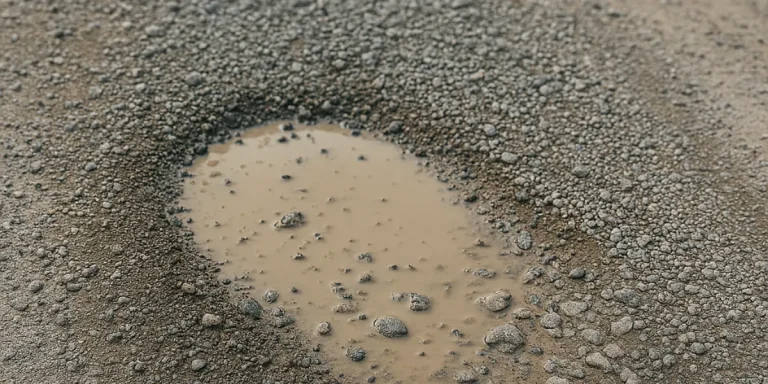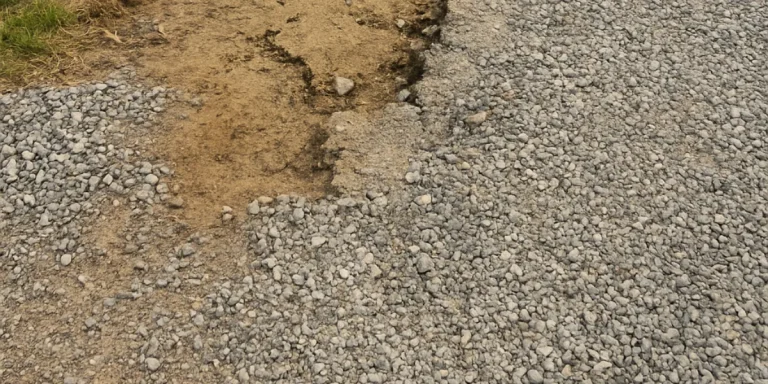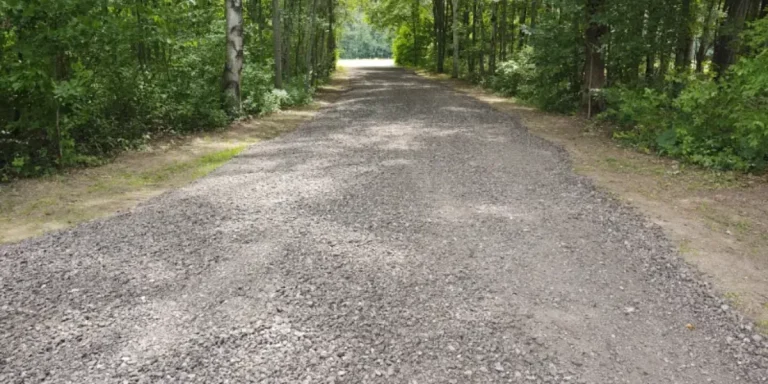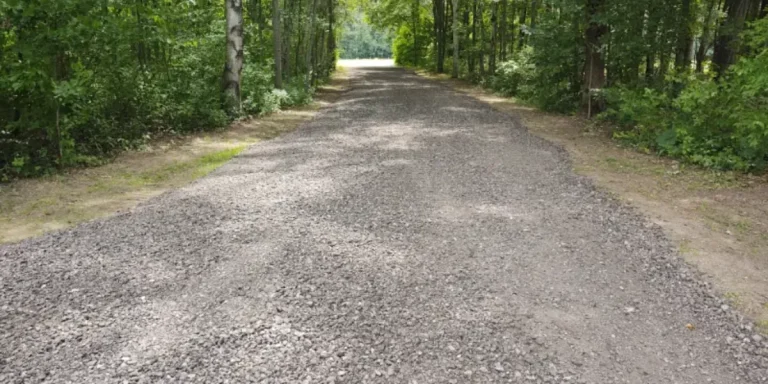Should You Use Crushed Stone or Gravel?
If you're planning a driveway, walkway, or landscaping project, one of the first decisions you'll face is whether to use crushed stone or gravel. While they may look similar at first glance, the materials perform differently—and choosing the right one can save you time, money, and future headaches.
At Gath’s Landscaping, we help homeowners and property managers across Clio, Michigan and the surrounding areas choose the right material for their specific needs. This post breaks down the key differences, use cases, and things to consider before scheduling your material delivery.
What’s the difference between crushed stone and gravel?
Though often used interchangeably, crushed stone and gravel are two very different materials with unique properties. Understanding the difference can help you choose the right product for your specific landscaping or hardscaping project—whether you're working on a gravel driveway resurfacing, preparing a new lawn installation, or enhancing your garden beds.
Crushed Stone
-
- Mechanically produced by crushing larger rocks such as limestone, granite, or dolomite
- Features sharp, angular edges that help the material lock tightly together
- Provides excellent compaction and stability, making it ideal for structural applications
- Commonly used as a base for driveways, paver patios, walkways, retaining walls, and drainage solutions
- Performs especially well in areas with heavy foot or vehicle traffic, or where erosion is a concern
Because of its ability to stay in place and resist shifting, crushed stone is the material of choice for many of the long-lasting, functional landscapes we build at Gath’s Landscaping. It's also an important part of larger projects like yard grading and drainage corrections, where material movement can lead to bigger issues over time.
Gravel
-
- Naturally formed through weathering and water erosion, or artificially rounded for a smoother finish
- Has rounded edges, giving it a softer, more natural appearance
- Easier to spread by hand, making it a great choice for DIY-friendly areas
- Commonly used in decorative garden paths, seating areas, around garden beds, or as part of a landscape design
- Can be used in lighter-use applications where aesthetics matter more than structural strength
Because it’s visually appealing and easier on the feet, gravel is often chosen for mulched areas, border paths, or low-traffic landscape accents. If you’re working with Gath’s Landscaping on a full landscape makeover, we may recommend gravel to soften edges, fill in design spaces, or create cozy outdoor nooks that don’t need the strength of crushed stone.
By using the right material in the right place, your landscape will not only look better—it will perform better. Whether you're tackling erosion issues, prepping a new sod installation, or simply trying to keep your landscape maintenance as low-effort as possible, our team at Gath’s Landscaping will help you choose the best option for long-term results.
Which material is best for your project?
Deciding between crushed stone and gravel comes down to how the material will be used and what you need it to do. While both can be attractive and functional, they each perform differently depending on the application.
When to use crushed stone
Crushed stone is the better choice when stability, compaction, and long-term durability are your top priorities. It’s commonly used in structural applications where movement or erosion could cause serious issues over time.
Here are a few common uses where crushed stone excels:
-
- Gravel driveway resurfacing
The angular pieces interlock tightly when compacted, creating a firm surface that resists shifting, rutting, and washouts—especially important in Michigan’s freeze-thaw climate. - Base layers for patios, walkways, or retaining walls
Whether you’re installing a new paver patio or constructing a retaining wall, crushed stone forms a strong, stable base that won’t shift or settle under pressure. - Drainage projects
In applications like French drains or swales, crushed stone allows water to flow freely while minimizing soil erosion. It’s often used alongside our yard grading and drainage correction services to control runoff and protect your foundation.
- Gravel driveway resurfacing
Crushed stone is also ideal for larger landscape construction projects that require reliable structural support.
When to use gravel
Gravel, with its smooth, rounded texture, is best used in decorative or low-traffic applications where comfort and aesthetics take priority. It’s easier to spread by hand, making it ideal for DIY-friendly areas or finishing touches.
Gravel works well in:
-
- Garden paths and walking trails
Its smoother surface is more comfortable underfoot, making it a great choice for informal paths winding through your landscape. - Accent areas around planting beds
Gravel can be used to add texture and contrast around mulched beds, shrub plantings, or perennial gardens, enhancing visual appeal without overwhelming the space. - Outdoor seating areas
For patios or sitting spaces that don’t need a hard surface, gravel offers a softer, more natural look that pairs well with landscape design features like benches, fire pits, or pergolas.
- Garden paths and walking trails
In many cases, we use gravel and crushed stone together in the same project, applying each where it performs best. At Gath’s Landscaping, we’ll help you create a cohesive design that blends appearance and function, whether you're tackling a gravel driveway, installing a new garden bed, or updating your entire landscape.
Material performance in Michigan's climate
In Mid-Michigan’s freeze-thaw cycles, crushed stone tends to outperform traditional gravel when stability matters most—especially in driveways or base layers where shifting and erosion are common. Gravel, on the other hand, is more prone to movement and washout, especially on sloped areas.
If you're in Clio, Birch Run, or Mt. Morris, and dealing with wet soil or uneven terrain, crushed stone is usually the better long-term investment.
Cost comparison
When comparing crushed stone and gravel, price is often a key consideration—but it shouldn’t be the only factor. Each material offers a different balance of cost, performance, and ease of installation.
Crushed stone
-
- Slightly more expensive per cubic yard
- Provides superior compaction and durability, especially under heavy use
- Often the better investment for gravel driveway resurfacing, paver bases, or drainage installations, where long-term performance matters
Gravel
-
- More affordable and budget-friendly for decorative uses
- Easier to install by hand for small DIY projects
- Great for garden paths, planting bed accents, and low-traffic landscape features
While the per-yard cost difference may be minimal, choosing the wrong material for your specific project can lead to premature wear, ongoing maintenance, or even complete replacement—costing more in the long run.
At Gath’s Landscaping, we always consider your goals, budget, and site conditions when recommending materials. Whether you're working on a functional upgrade like a new drainage system, or enhancing curb appeal with mulch and gravel borders, we’ll help you choose a cost-effective option that performs well and looks great for years to come.
Need help deciding? We’ve got you covered.
At Gath’s Landscaping, we deliver both gravel and crushed stone to homes and businesses across Genesee County and surrounding regions. If you’re resurfacing a gravel driveway, prepping for a patio, or simply enhancing your landscape, we can help you select the right material and deliver exactly what you need—on time, and with the right equipment for your property.
We’ve helped homeowners in:
-
- Clio
- Mt. Morris
- Birch Run
- Frankenmuth
- Flushing
- Saginaw
Ready to order the right material?
Whether you need crushed stone for a driveway base or decorative gravel for garden paths, Gath’s Landscaping is here to help. Our experienced team will guide you in choosing the best material, calculate how much you need, and deliver it right to your door.
We proudly serve Clio, Michigan and surrounding areas with expert material delivery, gravel driveway resurfacing, mulching, landscape grading, and more.
Call us today or request a free estimate to get started on your next project.

